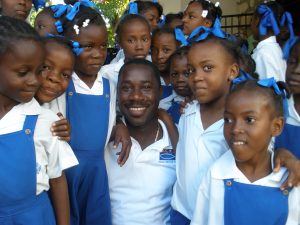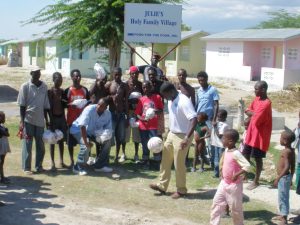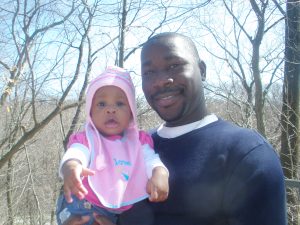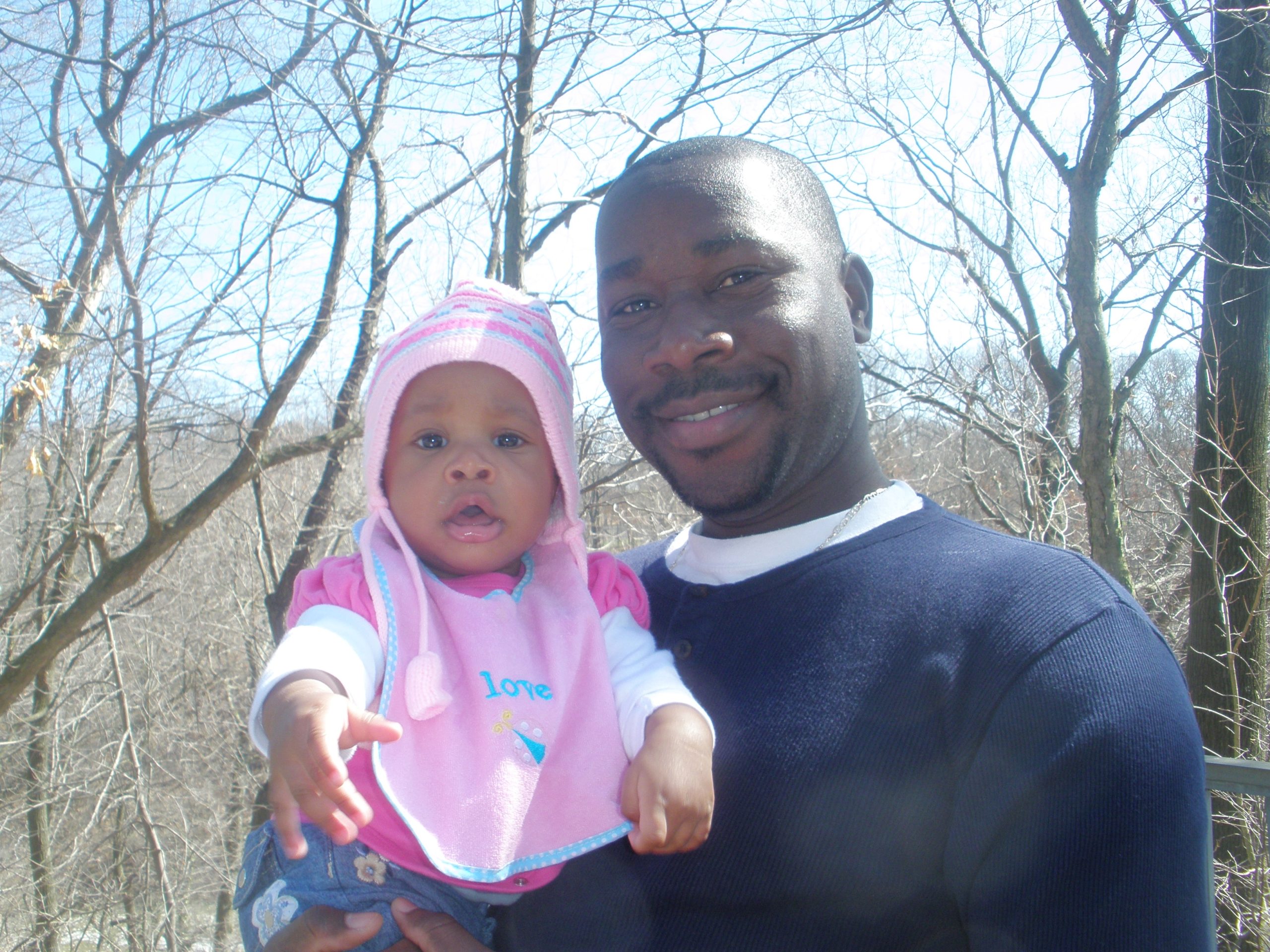We recently we sat down to chat with FFP’s Haiti Project Manager and all-around-great-guy, Lesly Clervil.

Q: Can you tell us a little about your background and how you ended up here at FFP?
I was born in Petionville (outside Port-au-Prince). I grew up in Haiti, and I got a 4-year degree in accounting and 2-year degree in business admin. I went to high school at Jean Price Moss, and college at Quisqueya University (which was destroyed in the earthquake). After that I had 10 years of banking experience. I was a branch manager for 5 years with Unibank and Soca Bank. Moving to America, I had started with a Masters program in Accounting at Broward College when I got hired by FFP.
Well, I was trying to get FFP-Haiti as one of my clients (laughs), and I made some connections with the HR director at the time. By knowing them I became aware that they had a position open for a chief accountant. They didn’t hire me at first. After that, I moved to the U.S. in 2006, and started working at the Westin Diplomat Hotel as a Housekeeping Supervisor managing a team of 10 for 7 months, then I moved to Walgreens as an Assistant Manager and spent a year working there.
Then I got connected to a friend who worked with FFP, so we came to visit the office here in Florida. I met the people here, I met Robin and I started keeping in touch with them. I sent in my resume and 6 months later, they had an opening.
At the time, I was hesitating over whether or not to return to Haiti. I wasn’t sure where I fit in. But getting a job with FFP was a gate for me to a new life to do a very useful work and also save and improve my credentials.
I was hired first as a project coordinator, then I got promoted to project manager. They needed someone who knows the reality of the country of Haiti, someone who’s able to share with people the reality of the situation and relate to the Haitian people.
Q: How has the transition been from the world of finance and banking to what you’re doing now?
For me, the transition has been very useful and painful.
The work I do now is painful in that FFP takes me back to see things I didn’t really think about very much when I lived there in Haiti and really being more sensitive. Seeing the dark side of where you’re from and the suffering of my people was very hard to endure. It’s was very sad to see these things, and to hear people’s comments about my country, and my people – who I identify with myself.
But now we have the opportunity to help these people and change their lives and circumstances. This is where I feel proud being a Haitian to bring hope to them through the mission of FFP and its generous donors.
It is useful in that I’m learning a lot myself in the work I’m doing, it’s a good opportunity for me to learn things in a different domain I never experienced which allows me to improve my administrative skills and be more confident with myself.
Q: Do you have any hidden talents?
I’m a very good dancer (laughs)! I’m a people person, I love talking, I’m a jovial type and most importantly a true believer in our Lord Jesus Christ. This job suits me well because I get to interact with all sorts of people and have the chance to collect so much wisdom and patience.

A man of many talents.
Q: Tell us one or two things most Americans probably don’t know about Haiti.
Most Americans don’t realize Haiti was the first black country. We got our freedom in 1804, we also fought with the U.S. in Savannah, GA against the British. One of our most famous soccer players was Emmanuel Sanon.
Haitians are fighters and will strive to survive under whatever the circumstances.
Q: Are there any trips or experiences in the field that personally impacted you the most, or was the most emotional for you?
Oh yeah. The most emotional trip was the one after the earthquake. I was there 2 days after the earthquake. Six of my family members perished in the quake. I stayed almost two weeks, sleeping in cars. First of all I was helping FFP to clear aid they were sending at the airport through Fedex and Spirit Airline. I was also looking for a way to get the bodies out of the rubble.
After a week, my brother and I connected with some local guys who could help clear rubble and find people. They had no tools or equipment, only hammers and shovels, and they were using plastic bags as gloves and put toothpaste under their noses to kill the smell as the bodies started decomposing after a week.
It was definitely the hardest time of my life for I had to be able to identify them.
Q: How would you describe how far progress has come in Haiti since the earthquake, and what are your hopes for your homeland in the coming years + decades?
We do have some progress. I would say the rubble has been mostly cleared. We have less people living in tents. FFP has been building a tremendous amount of homes in places like Z’orange, Croix-des- Bouquets, Leogane, Thomazeau and the outskirts of Port-au-Prince.
Most importantly in the countryside, where a lot of the poor people live and were displaced after the quake, we build a lot of homes. From Cap-Haitien, to Port-de-Paix, to Fort Liberte, we are helping people. Even just a couple months after the quake, FFP was building 200 homes a month in Port-au-Prince and in Cap-Haitien. The need is still obvious as you are driving around Port-au-Prince, but we believe that one family at a time, everyday, a difference is being made.
Being a Haitian, I’d like to see a complete unity and understanding of the people regarding the country itself. Working together for a better Haiti that really all Haitians should be proud of.
I want to see things that I know can be done in Haiti like building highways, good roads, having electricity 24 hours a day, a real agricultural program that will support farmers to feed the country, and jobs for unskilled and skilled people to fight against poverty. Haiti is only 27,500 sq kms , if we really understand the challenge and start working in that direction, together all that can happen.
Q : Can you give us a good Kreyol phrase to impress our friends with?
Ampil mem, chay pa lou.
(With a lot of hands, nothing is heavy).


